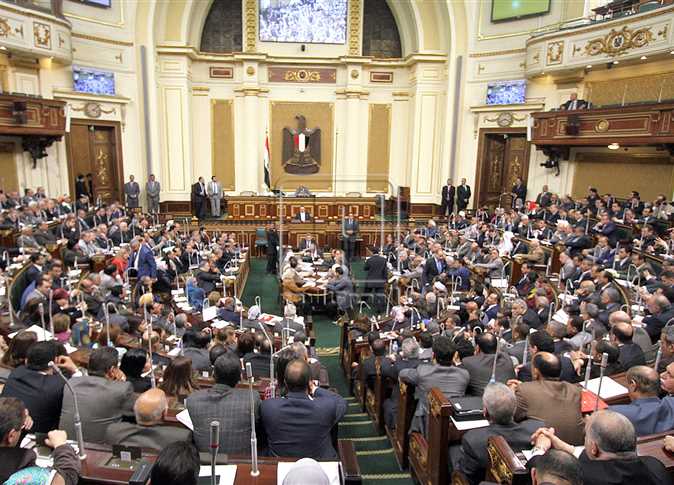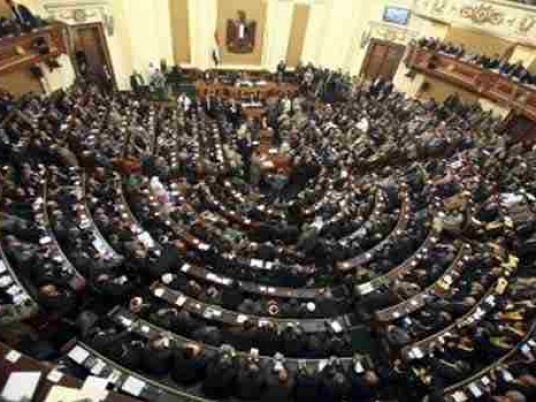As the fall of Hosni Mubrak’s rule encouraged Salafis to tap into politics, it also enticed their Sufi foes to form their own political party. Last week, the Sufi-dominated Egyptian Tahrir Party acquired official status, presenting itself as the first manifestation of a heavy Sufi involvement in politics.
This party is meant to act as a counterweight to the Salafi influence in politics and to protect Sufi interests, Mohamed Alaa Eddin Abul Azayem, its main founder, told Al-Masry Al-Youm in an interview.
“Salafis hold whoever does not subscribe to their ideas as a nonbeliever. For them, Sufis, Shia and unveiled women are nonbelievers,” said Azayem, leader of the Sufi Azmeyya order. “Hence the need for a moral party that would make people feel safe.”
The Sufi doctrine stands as the antithesis of Salafi Islam, given its high level of tolerance and mysticism. Salafis have always been vocal in questioning Sufis' faith and accusing them of spreading bida’ or un-Islamic practices, such as sanctifying shrines and celebrating the birthdates of the prophet’s family members and Sufi saints.
Fears of Salafi hostility have intensified since the revolution due to the rising influence of Salafi groups. So far, they have formed at least three political parties to compete for power. In the meantime, they have spearheaded a campaign to ensure that the post-Mubarak political order will be compatible with their understanding of Islamic Sharia.
Abul Azayem could not hide his fears that Salafis might abrogate Sufi orders and indeed dismantle the Supreme Council of Sufi Orders if they reach power.
In this case, he said, “Sufis will end up with no organization.”
“Hence, there should be another organization for Sufis. This Sufi party should act then as an umbrella for all Sufi orders,” he said, adding that 70 percent of the party’s 5200 founding members belong to the Azmeyya order.
Established during the second half of the 19th century, Azmeyya is one of at least 70 Sufi orders in Egypt. There is no official record of the number of Sufis in Egypt, but Sufi leaders estimate their followers at more than 10 million. For decades Sufis have remained aloof from politics, an attitude related to their belief in asceticism.
Yet the engagement of the Azmeyya order in party politics comes as no surprise for some experts.
“The Azmeyya was the most politicized order in terms of opposing the old regime,” said Rabha Allam, a researcher at Al-Ahram Center for Political and Strategic Studies.
“Its opposition was not so flagrant, but its leader has a loud voice. He [Abul Azayem] had stances against Egypt’s policy towards Israel. He opposed the construction of a steel wall between Egypt and Gaza. He believed Egyptian-Israeli relations were more friendly than necessary," Allam said.
Due to this critical tone, Mubarak’s police apparatus spread rumors about the order, accusing it of receiving funds from Iran and serving as a backdoor for Shia influence in Egypt, added Allam.
Last month, Abul Azayyem made headlines by announcing that his followers would participate in a demonstration alongside youth-led secular and Coptic groups in reaction to the Islamist rally of 29 July. In a defiant tone, he vowed that his followers – whom he estimates to be in the hundreds of thousands – would fill up Tahrir Square and outnumber the Salafi rally held in the same spot two weeks earlier. Yet not all leaders of Sufi orders supported the call.
The protest ultimately failed to show Sufis' strength, as the turnout was far lower than that of the Salafi demonstration.
Abul Azayem, 68 and a geologist by training, blamed the low turnout on media reports that claimed the protest was canceled and bad timing, as the rally took place at the same time a crucial football match was aired.
However, Allam said Sufi orders might still be incapable of mobilizing the masses behind political pleas.
“The ability of Sufis to mobilize people is restricted to mawalid [religious street celebrations of saints' and the prophet’s family members' birthdates] but not in Tahrir Square. … They still need time until they can play politics,” she explained.
The Egyptian Tahrir Party identifies itself as a social democratic party. Its platform envisages a political system based on pluralism, peaceful alternation of power, genuine democracy, freedom of expression, freedom of association, respect for human rights, and renunciation of violence and intransigence. The party also preaches social justice, expects the state to play a role in the economy, and stresses people’s rights to housing, education, healthcare and employment.
But what could distinguish the Egyptian Tahrir from other parties with social democratic agendas?
For Ibrahim Zahran, the party’s president, the answer is simple: It is the party’s “moral” identity that will make it stand out.
“A big percentage of the existing parties do not believe in the role of morals in politics,” said Zahran, adding that the party will promote morals and thus establish itself as a "clean” party arising in a “polluted” political environment.
Although he admitted that the majority of the party's founders belong to the Azmeyya order, he refused to label his party Sufi.
“The party is completely independent from the Azmeyya order and other orders,” said Zahran, who admits his own Sufi leanings but affirms he does not belong to any Sufi order.
To prove that the party is for all Egyptians and not just Sufis, Zahran says 10 percent of its founders come from minority groups, including Copts and Nubians.
In a confident tone, he said his party will run for 150 out of 504 contested seats in the upcoming People’s Assembly poll, slated for November. Yet the party is still undecided on who to back in the presidential poll.
According to Amr Ali Hassan, author of the colossal work “Political Socialization of the Sufi Orders in Egypt,” Sufis still lack political expertise.
“The party can become significant and effective if it manages to establish internal democracy, develop a comprehensive platform, and make up for its lack political expertise by recruiting [political] experts and political activists,” he said.
If the party succeeds in proving its strength, it could help tone down the political polarization between secularists and hardline Islamists that has been brewing since the fall of Mubarak, said Hassan.
“This party can help liberals and leftists find a moderate religious trend that they ally themselves with and hence diffuse allegations that liberals are averse to religion,” he said.




